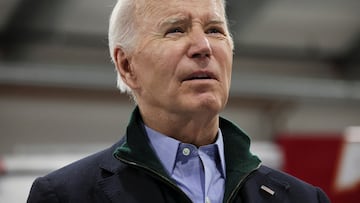What are bank overdraft fees and how can a new Biden proposal reduce them?
President Biden has released a new proposal to reduce the prevalence of overdraft fees. Here is what you need to know.


Feeling bogged down by overdraft fees and other penalties that banks are able to charge? Each year, families across the United States pay billions in fees, and the White House has shown interest in limiting the power of financial institutions to charge these fees.
The White House put out a press release on Wednesday, 17 January, announcing a rule change limiting the overdraft fees that banks can charge customers.
“Today’s proposal would cut the average overdraft fee by more than half, saving the typical American family that pays these fees $150 a year,” explained the statement from President Biden. All in all, these new rules could save families $3.5 billion a year, but the White House sees the implementation as unlikely, blaming opposition from Congressional Republicans.
Americans are saving $5.5 billion a year because of Biden-Harris Administration actions to crack down on excessive overdraft and bounced check fees.
— The White House (@WhiteHouse) January 17, 2024
That’s nearly $170 in savings a year for the 33 million households that typically pay these fees.
CFPB describes new rule
Related stories
The Consumer Financial Protection Bureau described the new proposal earlier this week, saying it “would close an outdated loophole that exempts overdraft lending services from longstanding provisions of the Truth in Lending Act and other consumer financial protection laws.” If banks want to keep charging these high rates, they would need to disclose additional information or impose a fee that represents the actual cost of an overdraft account based on their own financial data.
Under the proposal, large banks would be free to extend overdraft loans if they complied with longstanding lending laws. Alternatively, banks could charge a fee to recoup their costs at an established benchmark – as low as $3, or at a cost they calculate, if they show cost data.
— consumerfinance.gov (@CFPB) January 17, 2024
The CFPB Director Rohit Chopra also explained that the justification for overdraft fees, which related to the need “for banks to cover paper checks that were often sent through the mail,” no longer applied and that the new proposal brings to an end to the era of these penalties being used as “a massive junk fee harvesting machine.”

